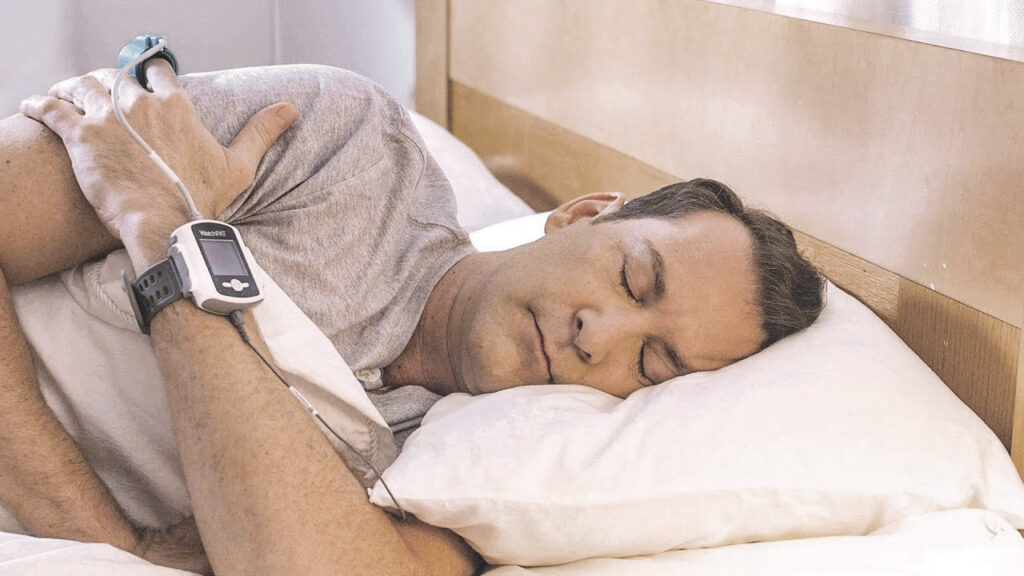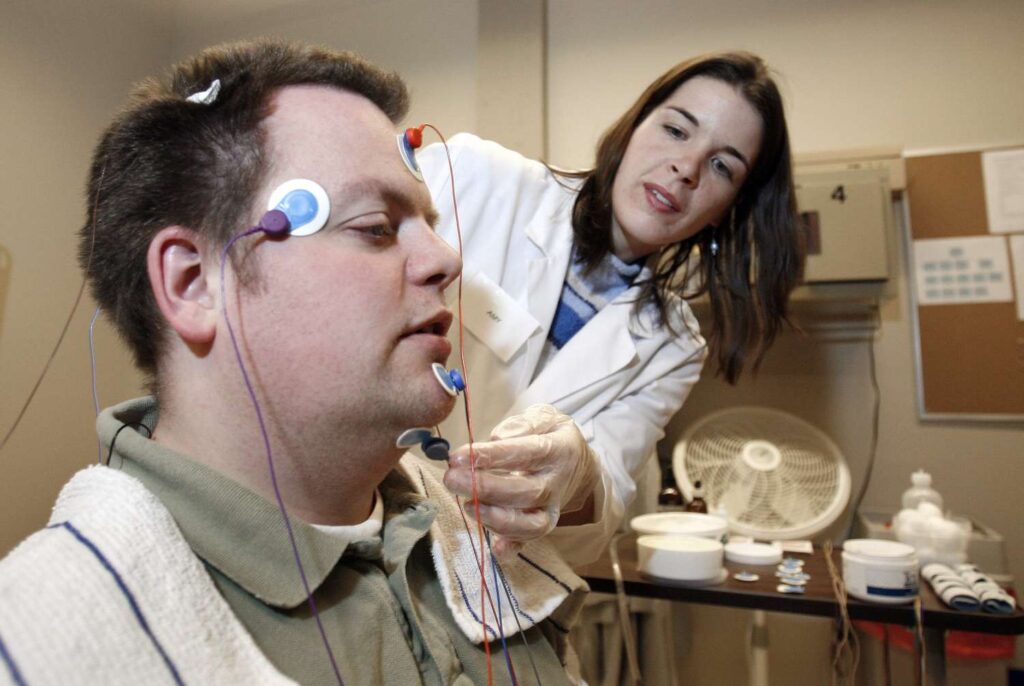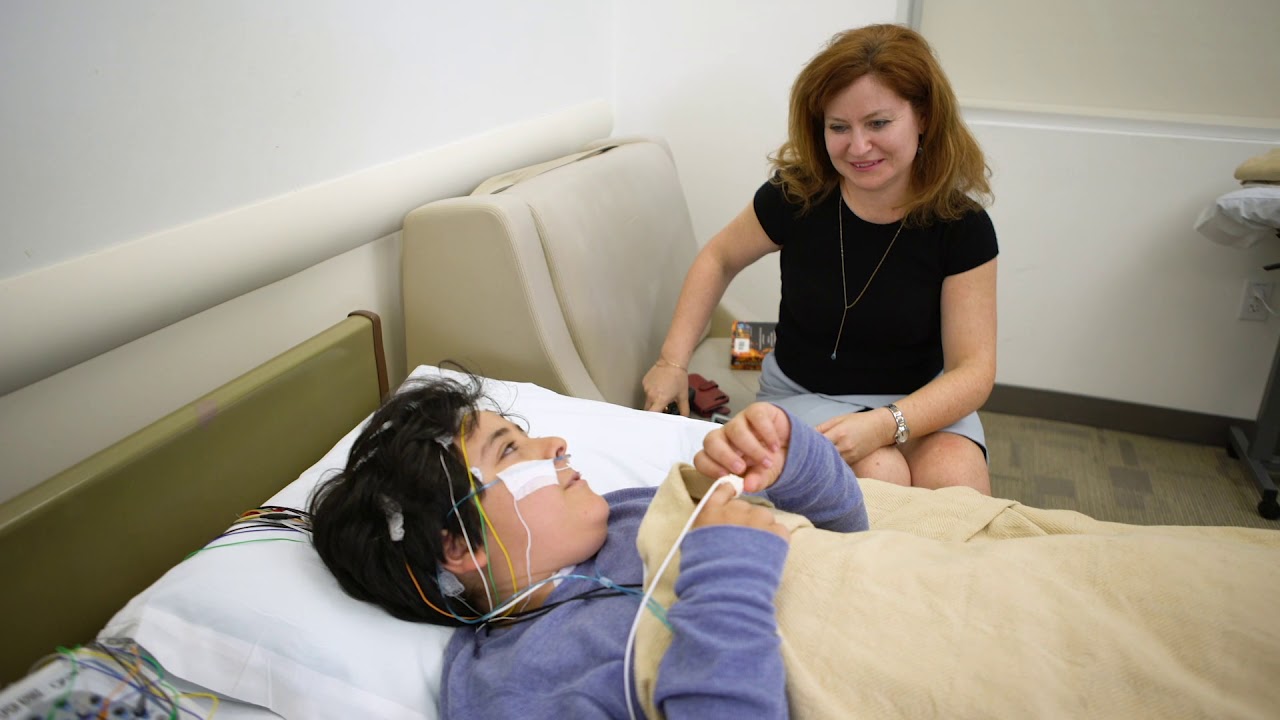Sleep is a vital component of our overall health and well-being, yet millions of people struggle with various sleep disorders. If you’ve been experiencing chronic fatigue, excessive daytime sleepiness, or difficulty falling or staying asleep, a sleep study test might be the solution.
This article will explain what a sleep study test is, how it works, and how it can help diagnose sleep disorders, ultimately leading to better sleep and improved quality of life.
Understanding Sleep Disorders
What Are Sleep Disorders?
Sleep disorders encompass a range of conditions that affect the ability to sleep well on a regular basis. Common types of sleep disorders include:
- Insomnia: Difficulty falling asleep or staying asleep.
- Sleep Apnea: A condition characterized by pauses in breathing or shallow breathing during sleep.
- Restless Legs Syndrome (RLS): An overwhelming urge to move the legs, often accompanied by uncomfortable sensations.
- Narcolepsy: A neurological disorder that affects the brain’s ability to control sleep-wake cycles.
Why Are Sleep Disorders Important?
Addressing sleep disorders is crucial for maintaining physical and mental health. Poor sleep can lead to a variety of health issues, including obesity, heart disease, diabetes, and mental health disorders. Therefore, understanding and diagnosing these disorders is essential for effective treatment. Learn more what you need to know for a better night’s sleep.
What Is a Sleep Study Test?
Definition and Purpose
A sleep study test, also known as polysomnography, is a comprehensive examination that records various physiological signals during sleep. The primary purpose of this test is to identify sleep disorders and determine the most appropriate treatment options.
Types of Sleep Study Tests
There are different types of sleep study tests, including:
- In-Lab Sleep Study: Conducted in a sleep center, this test monitors various parameters, including brain activity, eye movements, heart rate, and breathing patterns.
- Home Sleep Study: A simplified version of the in-lab test, performed in the comfort of your home using portable monitoring equipment.
How Does a Sleep Study Test Work?
Preparing for the Test
Before undergoing a sleep study, patients may need to follow specific preparation guidelines:
- Discuss Medical History: Your healthcare provider will review your medical history and discuss any current medications.
- Avoid Stimulants: It’s advisable to avoid caffeine, nicotine, and alcohol for at least 24 hours before the test.
- Follow Sleep Schedule: Try to maintain your regular sleep schedule leading up to the test.

During the Test
On the night of the test, you’ll arrive at the sleep center or prepare your home setup if you’re doing a home sleep study. Here’s what you can expect:
- Electrodes Placement: For an in-lab study, electrodes will be placed on your scalp, face, chest, and legs. These electrodes will monitor brain waves, heart rate, and muscle activity.
- Monitoring: Throughout the night, various parameters will be recorded, including:
- Brain Activity: To determine sleep stages.
- Eye Movements: To identify REM sleep.
- Breathing Patterns: To check for any irregularities.
- Oxygen Levels: To monitor respiratory function.
If you are doing a home sleep study, you will be given portable equipment to wear while you sleep. This may include sensors for your finger, chest straps, and a nasal cannula to measure airflow.
After the Test
Once the sleep study is complete, the data collected will be analyzed by a sleep specialist. They will interpret the findings to identify any sleep disorders and recommend appropriate treatment options based on the results.
What Can a Sleep Study Test Diagnose?
Common Conditions Diagnosed
A sleep study test can help diagnose various sleep disorders, including:
- Obstructive Sleep Apnea (OSA): Characterized by repeated episodes of blocked breathing during sleep.
- Central Sleep Apnea: Occurs when the brain fails to send signals to the muscles that control breathing.
- Periodic Limb Movement Disorder (PLMD): Involves involuntary leg movements during sleep.
- Narcolepsy: As mentioned earlier, this condition affects the brain’s sleep-wake cycle.
Benefits of Diagnosis
Diagnosing a sleep disorder can lead to targeted treatments that improve sleep quality and overall health. Treatment options may include lifestyle changes, continuous positive airway pressure (CPAP) therapy for sleep apnea, medications, or cognitive behavioral therapy for insomnia.

Transitioning to Treatment
Personalized Treatment Plans
After receiving the results of your sleep study test, a healthcare provider will work with you to create a personalized treatment plan. This plan may involve:
- Behavioral Changes: Modifying sleep habits, improving sleep environment, and addressing stress or anxiety.
- Medical Treatments: Prescribing medications or recommending devices like CPAP machines for sleep apnea.
- Ongoing Monitoring: Regular follow-ups to track progress and make necessary adjustments.
Importance of Follow-Up
Following up after a sleep study is crucial to ensure the effectiveness of the treatment plan. Patients may require additional tests or adjustments to their treatment based on their progress.
Lifestyle Changes to Enhance Sleep Quality
Sleep Hygiene Tips
In addition to seeking medical help, practicing good sleep hygiene can significantly improve sleep quality. Here are some helpful tips:
- Establish a Routine: Go to bed and wake up at the same time every day, even on weekends.
- Create a Sleep-Friendly Environment: Ensure your bedroom is dark, quiet, and cool. Invest in a comfortable mattress and pillows.
- Limit Screen Time: Avoid screens (phones, tablets, TVs) for at least an hour before bed, as the blue light emitted can interfere with melatonin production.
- Stay Active: Regular physical activity can help you fall asleep faster and enjoy deeper sleep.
Conclusion
In summary, a sleep study test is a valuable tool for diagnosing sleep disorders and finding effective treatments. If you’re struggling with sleep issues, consider discussing the possibility of a sleep study with your healthcare provider. Remember, better sleep leads to better health, and taking proactive steps towards diagnosis and treatment is the first step on the path to restful nights and energized days. By understanding the importance of sleep study tests and implementing lifestyle changes, you can enhance your overall quality of life and well-being.

